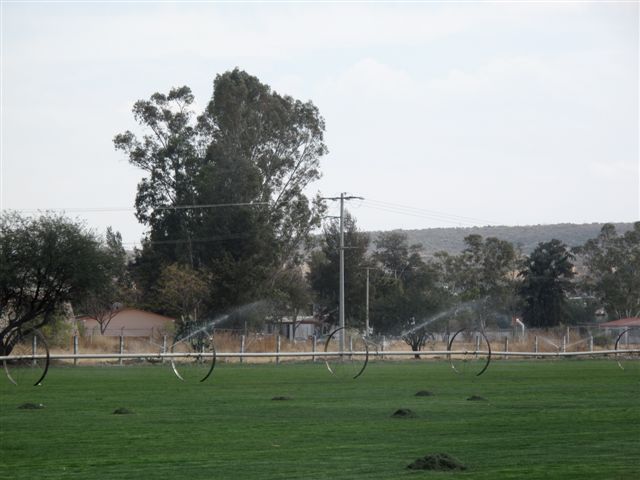Late last month, the International Water Management Institute (IWMI) reported that farmers in South Asia and sub-Saharan Africa are increasing the use of small-scale irrigation schemes as a result of drought that puts the security of food supplies at risk. The three-year study found that, rather than wait for rainfall, smallholder farmers, whose farms supply food for individual families, are using their own resources innovatively. The IWMI report says that experts believe that improving water management capabilities could become “a major driver of economic growth, poverty reduction and food security.” As Reuters noted, small-scale irrigation technology, such as motorized pumps and hosing to access groundwater, could improve crop yields by between 75 and 275 percent.
OPIC recognizes that more efficient forms of irrigation are critical to conserving water and expanding agricultural production. Our blog recently featured Oregon-based Wade Rain, which is using OPIC political risk insurance in a project to sell advanced irrigation technologies, which helps farmers use up to 80% less water.

"Wheel irrigation" is one of the more efficient irrigation technologies that OPIC client has helped introduce in Mexico.
Another way to help increase food supply may be to build “green cities” in developing nations, allowing for families to meet their nutrition and income needs in a sustainable way. According to a new report from Food and Agriculture Organization of the United Nations (FAO), 200 million people within Africa’s urban population lives on less than $2 a day and poor urban children are as likely to be chronically malnourished as poor rural children. Africa is growing faster than any other region, and African cities are unable to keep up with the demand for food.
Last month, we were also reminded of another major challenge to the developing world: reliable access to power. In India, approximately 670 million people were left without power after a power grid failed. Around the same time, The Times of India, profiled an OPIC-supported project that delivers power to remote communities located off the electricity grid. While, Husk Power Systems, which generates electricity from discarded rice husks, offers a practical solution for delivering electricity to remote communities, it is also calling attention to some of the benefits of off-the-grid power generation.
In another biomass deal, OPIC agreed to provide a loan to support Pakistan’s first grid-connected independent power project using agricultural waste-burning technology. Using locally-procured biomass, the project will help Pakistan address its shortage of power, reduce its greenhouse gas emissions and its reliance on fossil fuel, and ultimately serve as a replicable biomass model for the rest of the country.
OPIC is dedicated to helping small businesses learn how to gain access to the lucrative emerging markets overseas. Small businesses in the Pacific Northwest can learn more at the Expanding Horizons event on Oct. 3 in Seattle, and those in the Chicago area can join OPIC for a similar event on Oct. 8.
A reminder, to keep up with the daily headlines and stories impacting our work, make sure to follow our Facebook and Twitter feeds and feel free to post and message us.
